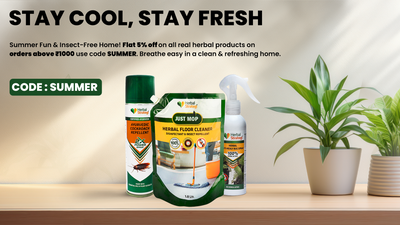
You need to be extra conscious of the products that you are using for your little one. Babies require changing clothes numerous times a day, which means the laundry work is troublesome. However, using an ordinary detergent for baby clothes is not ideally safe for your baby. The regular detergent you must be using is usually full of chemicals and toxins that can reach your little one's skin and cause allergies and infections. Switch to organic products to do laundry of your baby's clothes as these cause zero health issues. Luckily, you have landed in the right place to know everything about laundry detergents for babies.
Content Table
- Chemical Allergies Due to Detergent For Baby Clothes
- How to Pick Detergents for Baby Clothes
- How to Prevent Chemical Allergies in Babies
- Switch to Chemical-free Products
- Dont Switch Too Many Products
- Make Sure to Rinse Appropriately
- Avoid Bleach
- Use Plant-based Laundry Detergent for Baby
Chemical Allergies Due to Detergent For Baby Clothes
Children are sensitive to chemical-based products. As their immune system is not fully developed, they are prone to developing allergies, rashes, etc., due to exposure to toxins present in regular laundry products. As per studies, more than 30 % of babies under two years develop eczema. One of the contributing factors causing the diagnosis of this disease can be suspected as the usage of chemical-based detergents. While some babies might experience frequent rashes or irritation, some can experience severe complications.
While minor irritation can be treated using rash creams, if your baby develops the symptoms of a severe disorder like dermatitis, you must get medical help. The immune system of babies won't instantly react to allergies, it takes time, and therefore symptoms may appear gradually. To avoid such mishappening, you must switch to eco-friendly detergents as they are chemical-free.
How to Pick Detergents for Baby Clothes
Although not all detergents would necessarily cause infections, if your baby's liquid detergent has chemicals present in it, the risk is still prevalent. While picking detergent for your baby's clothes, make sure to buy the ones that are free from the harmful chemicals listed below.
Optical Brighter
Used to make clothes look brighter, optical light can cause skin, lung, and eye issues, making detergents unsuitable for newborns.Bleach
This component is present in various detergents as it helps to remove stains and makes clothes look brighter. However, exposure to bleach causes skin problems and allergies. When used in large quantities, it can lead to severe health damage.
Chemical Dyes
This is used in many liquid detergents to prevent the colors of the clothes from fading. A significant drawback is it causes skin irritation, rashes, etc. It can also lead to endocrine damage.
Artificial Fragrances
Many chemicals are used to make regular detergents smell good. These chemicals are the prime cause of burning eyes, allergies, etc.
SLES
Used in detergents to create foam and wash away dirt, sodium Laureth sulfate has much more drawbacks than benefits. It can lead to lung damage, eye irritation, and much more.
Formaldehyde
It is used in certain detergents due to its anti-bacterial properties. This chemical is highly toxic. It is also used to preserve the dead. Exposure to this can lead to significant health problems like organ damage, severe allergies, etc.
How to Prevent Chemical Allergies in Babies
You can prevent chemical allergies in babies by being mindful of the products you are using to carry out various activities. To perform laundry, it is best to switch to natural detergents. Here are a few tips that can help you ensure your baby's safety.
Switch to Chemical-free Products
Regular detergents are a pool of chemicals. Therefore, switching to organic detergents is essential. Go for baby detergents that are made using natural ingredients to ensure your baby's safety.
Dont Switch Too Many Products
Hopping from one product to another will not let you spot what product is causing problems for your baby. Research before buying baby detergents, and once you find safe detergents, stick to them.
Make Sure to Rinse Appropriately
The particles that are left behind after rinsing the clothes reach your baby's skin and cause infections, allergies, etc. To avoid this, rinse the clothes in plain running water 3-4 times before you dry them. Use detergents that dilute properly in water so the detergent can be rinsed easily.
Avoid Bleach
Baby clothes are ought to have stains and spots. You do not have to bleach clothes to get rid of stains. Chemicals like bleach severely irritate your baby's skin and can make them experience burning sensations.
Use Plant-based Laundry Detergent for Baby
Using plant-based laundry detergent for your baby's clothes is wise as they are toxin-free and do not put your child's health at stake. The ingredients used in such detergents are plant-derived and safe for your baby's skin. Added to that, plant-based detergents do not cause any pollution to the environment. These detergents do not contain hazardous chemicals like chemical dyes, bleach, fragrances, SLES, optical brighteners, etc., that can cause health problems for your baby. Instead, it is mindful of using plant-based detergents for your baby.
FAQs on Laundry Detergent for Baby
Is It Okay to Use Normal Laundry Detergent on Baby Clothes?
No, using ordinary detergents for baby clothes is not suitable for your baby's health. Regular detergents contain toxins and chemicals that cause allergies, infections, and rashes to your baby's skin. Additionally, extreme exposure to chemicals can cause severe health problems like organ damage, respiratory issues, etc.
Does Plant-Based Detergent Remove All Kinds of Dirt?
Yes, plant-based detergents have effective ingredients in removing stains and dirt. For instance, many plant-based detergents contain neem as an anti-bacterial agent that helps to remove dirt. Such ingredients help to clean clothes without making them unsafe for your baby.


